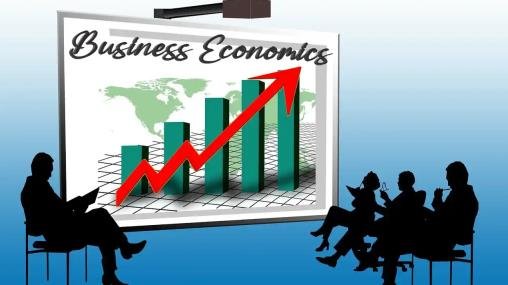Small business economics refers to the study of how small enterprises operate within the market. These businesses, usually defined by a small number of employees or limited revenue, play a crucial role in stimulating local economies and providing jobs. Understanding small business economics involves analyzing market behavior, pricing strategies, resource allocation, and how these businesses adapt to economic changes.
The Importance of Small Businesses in the Economy
Small businesses are the backbone of any economy, contributing to innovation, competition, and job creation. They often drive economic growth by filling market gaps that larger corporations might overlook. Small businesses are also known for their ability to react quickly to market trends, making them vital players in maintaining a dynamic and competitive economic environment.
Key Economic Factors Affecting Small Businesses
Several economic factors impact the success of small businesses, including inflation, interest rates, supply chain costs, and consumer confidence. For instance, high inflation can increase the cost of raw materials, while fluctuating interest rates may affect borrowing costs. Small business owners need to stay informed about these factors to make strategic decisions that can sustain their operations during economic uncertainty.
Supply and Demand Dynamics in Small Business
Understanding the dynamics of supply and demand is essential for small business owners. When demand for a product increases, prices tend to rise, encouraging businesses to expand production. Conversely, a decrease in demand may force a business to reduce its output or lower prices. Small businesses often have the flexibility to adapt to these shifts more quickly than larger companies, which is a significant advantage in maintaining profitability.
Pricing Strategies for Small Businesses
Pricing strategy is a critical aspect of small business economics. The price of a product or service must reflect its value while remaining competitive in the market. Common pricing strategies include cost-plus pricing, competitive pricing, and value-based pricing. Selecting the right strategy can help a small business attract customers while ensuring a healthy profit margin.
Costs and Budgeting in Small Business Operations
Effective budgeting is key to managing the costs of running a small business. Fixed costs, such as rent and utilities, must be covered regardless of the company’s revenue, while variable costs fluctuate with production levels. Small businesses must create a detailed budget plan to control expenses, allocate resources efficiently, and invest in growth opportunities without risking financial stability.
Economic Challenges Faced by Small Businesses
Small businesses often face significant economic challenges, including limited access to financing, competition from larger companies, and market volatility. They are also more vulnerable to economic downturns and changes in consumer behavior. Identifying these challenges early and developing strategies to counter them can help small businesses survive and thrive in a competitive market.
Strategies for Overcoming Economic Barriers
Overcoming economic barriers requires strategic planning and adaptability. Small businesses can explore various funding options, such as loans, grants, or crowdfunding, to secure the necessary capital. Diversifying products or services and implementing digital marketing strategies can also help in reaching a broader customer base and minimizing risk.
The Role of Government Policies in Small Business Economics
Government policies play a significant role in shaping the economic landscape for small businesses. Tax incentives, subsidies, and regulations can either support or hinder business growth. Understanding these policies and how they apply to specific industries can help small business owners make informed decisions and take advantage of available benefits.
Future Trends in Small Business Economics
The future of small business economics is being shaped by technological advancements, globalization, and evolving consumer preferences. Digital transformation, e-commerce, and data analytics are becoming essential tools for small businesses to stay competitive. Keeping up with these trends and adapting business models accordingly can ensure long-term success in an ever-changing market.
Conclusion
Small business economics is a dynamic field that requires continuous learning and adaptation. By understanding key factors like supply and demand, pricing strategies, and the economic challenges that small businesses face, entrepreneurs can make informed decisions to enhance their growth and sustainability. Staying up-to-date with economic trends and government policies will help small businesses remain competitive and play a crucial role in the broader economic landscape.
